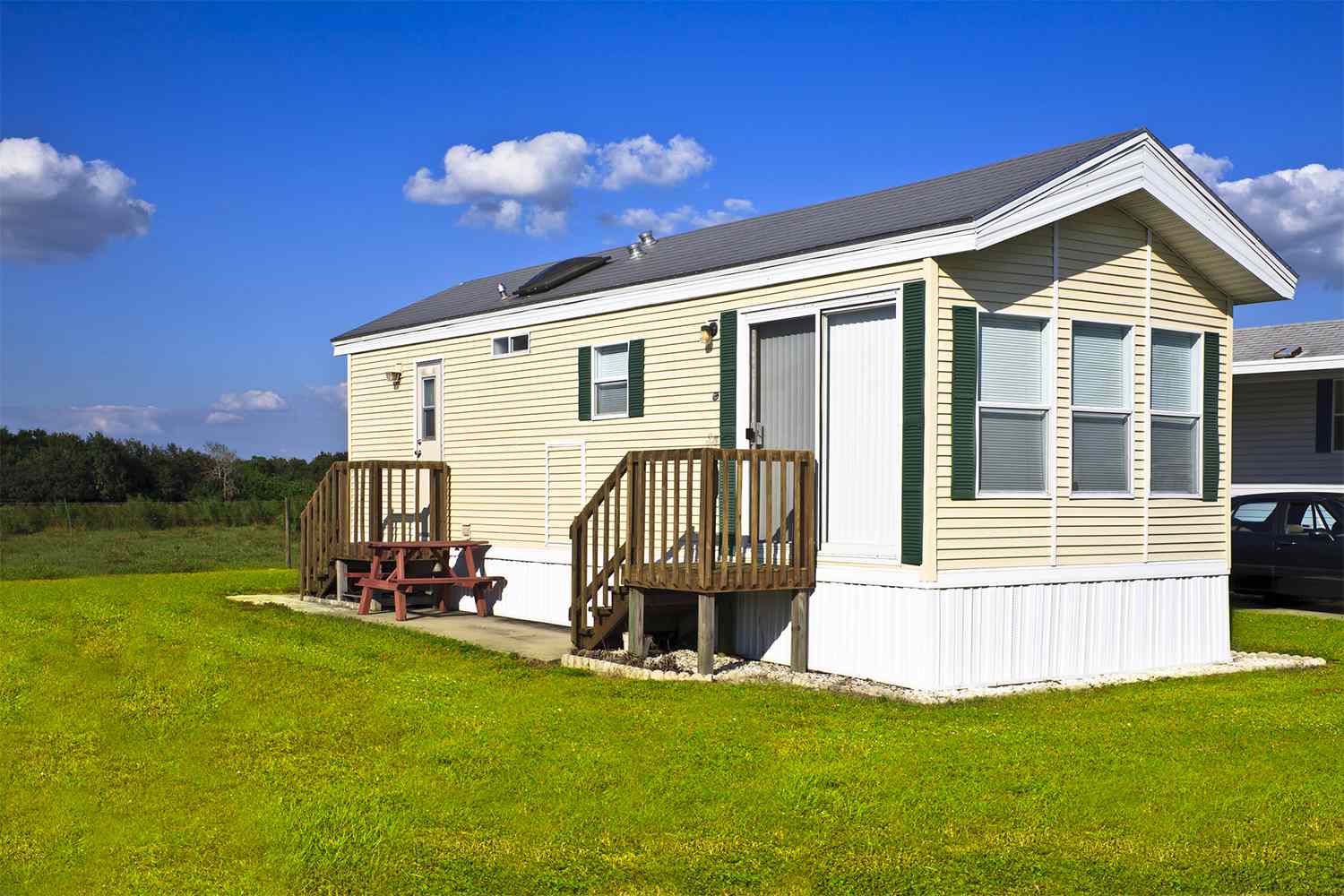A mobile home, also known as a manufactured home, is a type of prefabricated housing that is built off-site in a factory and transported to a specific location for installation. They are constructed on a steel frame and typically have a lower cost compared to traditional site-built homes.
Mobile homes are designed to be transported on the highway, making them easy to move from one location to another. They often come with features such as wheels, axles, and a hitch that allow them to be towed by a large truck or trailer. Some mobile homes are designed to be placed on a foundation, while others are designed to be placed on blocks or a temporary foundation. Mobile homes come in various sizes and floor plans, ranging from single-wide to double-wide and even triple-wide. They can be customized with a variety of finishes and features, including appliances, cabinets, flooring, and windows.
Mobile homes can be vulnerable to strong winds and storms, including hurricanes, due to their light construction and the fact that they are not anchored to a permanent foundation like traditional homes. However, some mobile homes are designed to be more resilient to hurricanes and other severe weather conditions.
The HUD Code, which is a set of construction standards developed by the U.S. Department of Housing and Urban Development (HUD), requires that all manufactured homes be designed and constructed to withstand wind speeds of at least 100 miles per hour in most areas. However, this standard may vary in regions that are prone to hurricanes or other extreme weather conditions.

Manufactured homes that are built to higher standards and installed properly can withstand hurricane-force winds, but it depends on several factors, such as the home’s age, construction quality, and installation method. Homes that are installed on a permanent foundation and anchored securely to the ground are more likely to withstand strong winds and storms.
It is important to note that mobile homes located in hurricane-prone areas should be prepared in advance of a storm by securing all loose items outside, reinforcing doors and windows, and evacuating when advised to do so. Homeowners should also ensure that their insurance policies cover hurricane damage and that they have a plan in place for evacuation or shelter in case of a hurricane.
Overall, Mobile homes can be a cost-effective and flexible housing option for those who want the convenience of a home that can be moved to a new location.
How to Prepare Your Mobile Home for Hurricane Season
If you live in an area that is prone to hurricanes and you own a mobile home, it’s important to take steps to prepare your home before hurricane season arrives. Here are some tips for preparing your mobile home for hurricane season:
-
Secure loose items: Before a hurricane strikes, it’s important to secure all loose items outside your home, such as lawn furniture, toys, and garden tools. These items can become dangerous projectiles during high winds and cause damage to your home or your neighbor’s property.
-
Reinforce doors and windows: Doors and windows are often the weakest points of a mobile home during a hurricane. You can reinforce them by installing storm shutters, plywood, or impact-resistant windows. You can also install deadbolts on your doors to prevent them from flying open during high winds.
-
Trim trees and branches: Trees and branches that are close to your home can cause serious damage during a hurricane. Trim back any branches that are within 10 feet of your home, and remove any trees that are too close to your home.
-
Check your insurance policy: Make sure that your insurance policy covers hurricane damage to your mobile home. Consider purchasing additional coverage if necessary.
-
Have an evacuation plan: If a hurricane is headed your way, it’s important to have an evacuation plan in place. Know where you will go and what you will bring with you. Keep important documents, such as your insurance policy, in a waterproof container that you can take with you.
-
Install anchoring systems: Anchoring systems can help keep your mobile home in place during a hurricane. Consider installing tie-down straps, ground anchors, or a foundation system to help anchor your home securely to the ground.
-
Keep your mobile home maintained: Regular maintenance of your mobile home can help prevent damage during a hurricane. Check your roof for leaks and make any necessary repairs. Keep your gutters clean to prevent water damage. Make sure your home’s exterior is in good condition to help it withstand high winds.




